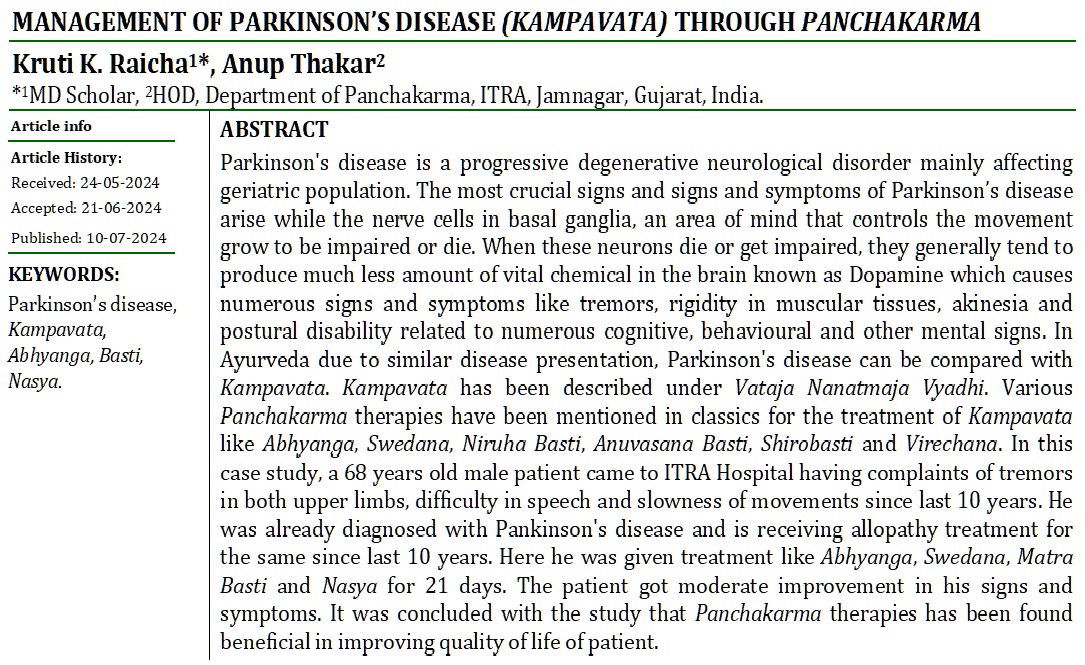Management of Parkinson’s Disease (Kampavata) Through Panchakarma
Abstract
Parkinson's disease is a progressive degenerative neurological disorder mainly affecting geriatric population. The most crucial signs and symptoms of Parkinson’s disease arise while the nerve cells in basal ganglia, an area of mind that controls the movement grow to be impaired or die. When these neurons die or get impaired, they generally tend to produce much less amount of vital chemical in the brain known as Dopamine which causes numerous signs and symptoms like tremors, rigidity in muscular tissues, akinesia and postural disability related to numerous cognitive, behavioural and other mental signs. In Ayurveda due to similar disease presentation, Parkinson's disease can be compared with Kampavata. Kampavata has been described under Vataja Nanatmaja Vyadhi. Various Panchakarma therapies have been mentioned in classics for the treatment of Kampavata like Abhyanga, Swedana, Niruha Basti, Anuvasana Basti, Shirobasti and Virechana. In this case study, a 68 years old male patient came to ITRA Hospital having complaints of tremors in both upper limbs, difficulty in speech and slowness of movements since last 10 years. He was already diagnosed with Pankinson's disease and is receiving allopathy treatment for the same since last 10 years. Here he was given treatment like Abhyanga, Swedana, Matra Basti and Nasya for 21 days. The patient got moderate improvement in his signs and symptoms. It was concluded with the study that Panchakarma therapies has been found beneficial in improving quality of life of patient.
Downloads

Copyright (c) 2024 International Journal of Ayurveda and Pharma Research

This work is licensed under a Creative Commons Attribution-NonCommercial-ShareAlike 4.0 International License.






